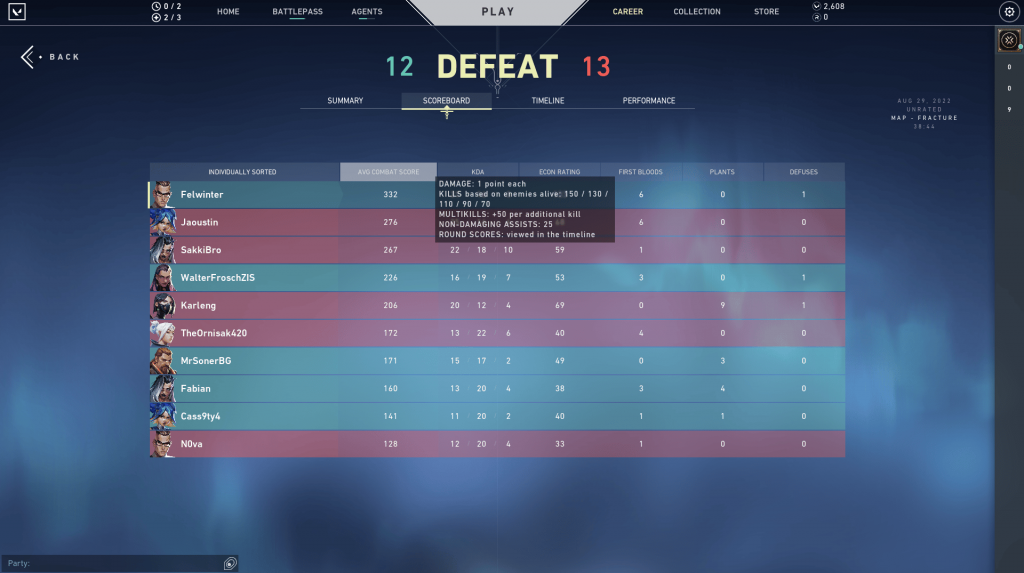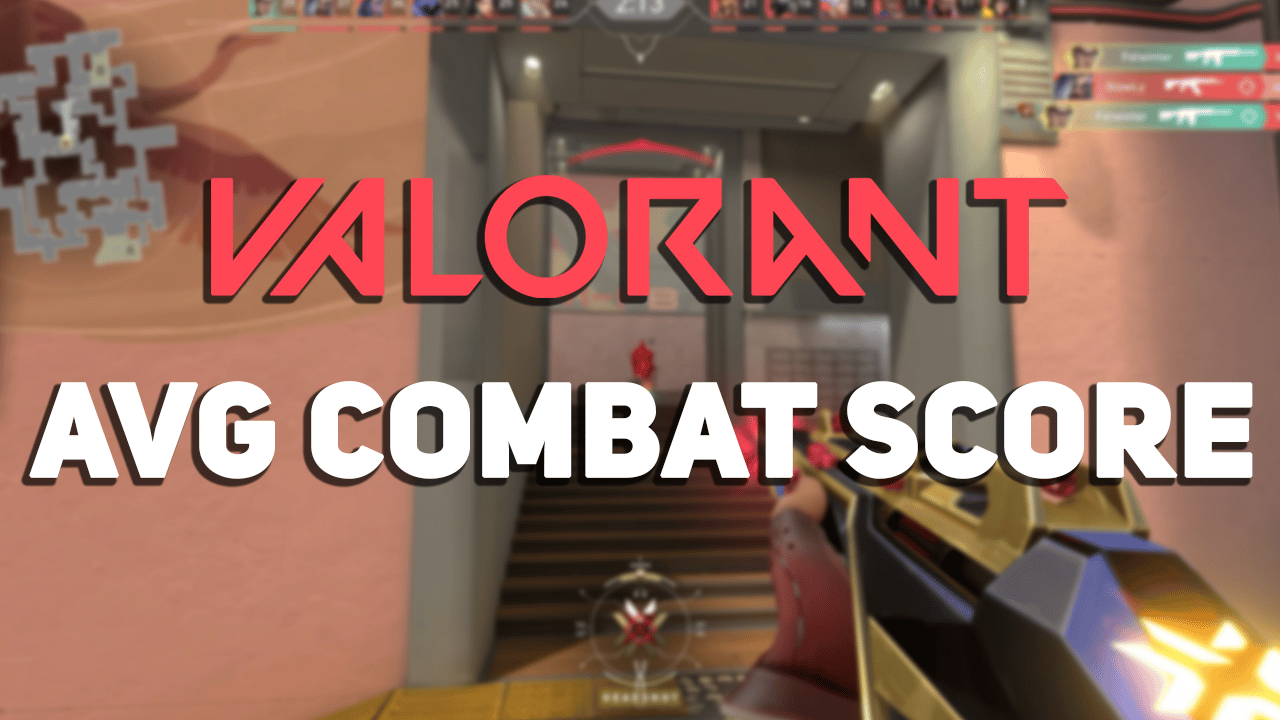In all the things that add up to your Valorant rank, your average combat score might seem to be the most important. With high ACS and a tight loss, you shouldn’t drop much if at all, and a win with a high ACS will grant you a lot closer to promotion. But how does it all work? And how important, is the ACS in Valorant?
How ACS Affects Your Rank
In short, your Average Combat Score (ACS) in Valorant is your contribution to the match. The higher your ACS the higher you will find yourself on the match’s scoreboard. Along with that, you can become a Team or Match MVP by having the highest ACS on the team or in the whole match.
And as you might have guessed, in Competitive your ACS will affect the amount of RR you gain/lose. This will help you climb ranks faster if you truly belong in a higher rank. But ACS is not the main factor, winning and the decisiveness of that win is still super important to get lots of RR.
Especially in higher ranks. At higher ranks, the game supposes that every player is more or less the same in terms of mechanics. This is why for them the win is everything as they gain and lose around the same amount of RR despite their individual performance and ACS.

What Affects ACS
Riot Games have released some insight into the ACS. In the 7th rendition of their routine “Ask VALORANT” series, developers answered questions on ACS as well as the stars that show up in your match history.
Your contribution to the match will mainly come from kills which makes sense. But there are quite a few other factors that will affect your ACS and show the Valorant ranking system that you are more impactful than your 5-15 Reyna.
These are all official counters for ACS in Valorant:
- Damage: 1 point each
- Kills based on enemies alive: 150/130/110/90/70
- Multikills: +50 per additional kill
- Non-damaging assists: 25
- Round Scores: viewed in the timeline
As you can see, kills are a key part, but your other deeds are also accounted for. Damage assists (that are counted as damage) can drastically improve ACS if you keep dealing 140 to each enemy. As well as your non-damage assists that you can get by using heals, spotting and slowing your enemies.
The round scores can be viewed on the timeline of each round. In the”Score” tab you will see your combat score for that round. Then at the end of the game, you will get an average of all your rounds.
Finally, there are some indirect factors like first bloods, plants, and streaks. It’s hard to say how much they actually affect your final ACS but they do at least a little. It’s not like you are going to focus on getting the first kill every round anyway (and you shouldn’t).
But to be impactful, you need to know your mechanics first. Here are a few guides to improve your aim and shooting:
Valorant Crosshair Settings: Best Crosshairs in the Game | The Best Aimlab Scenarios for Valorant | Best Settings for Valorant: A Guide To Increase Valorant FPS

